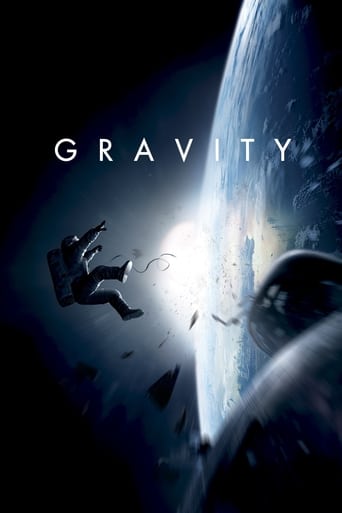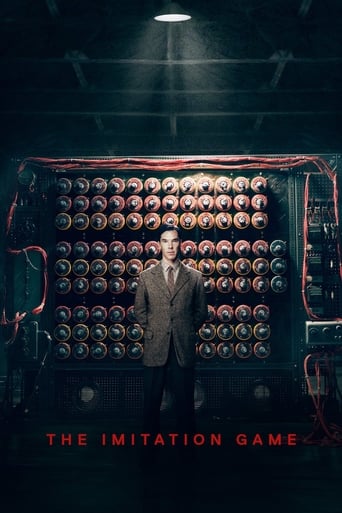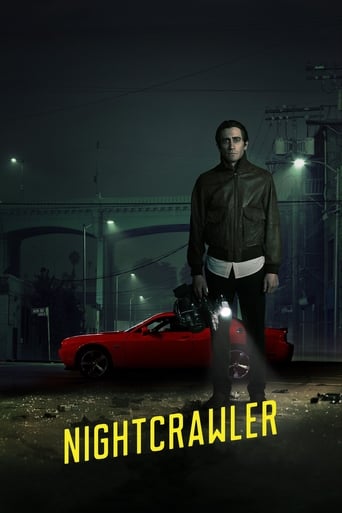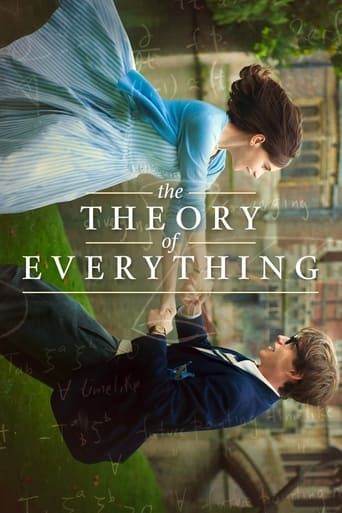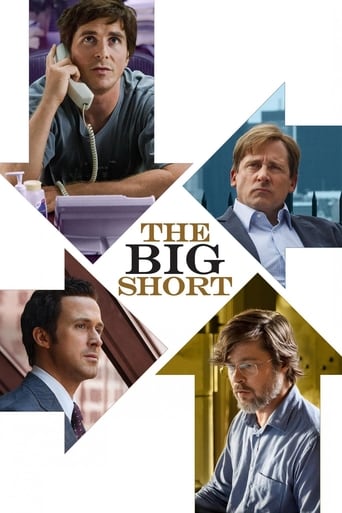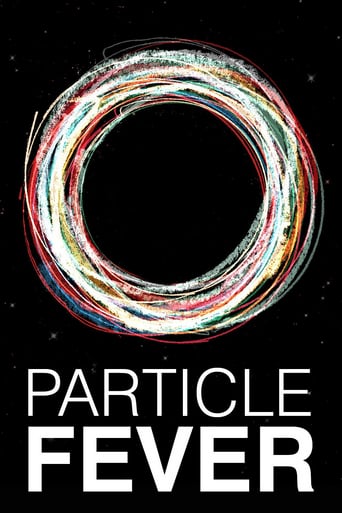


Particle Fever
As the Large Hadron Collider is about to be launched for the first time, physicists are on the cusp of the greatest scientific discovery of all time - or perhaps their greatest failure.
-
- Cast:


Similar titles
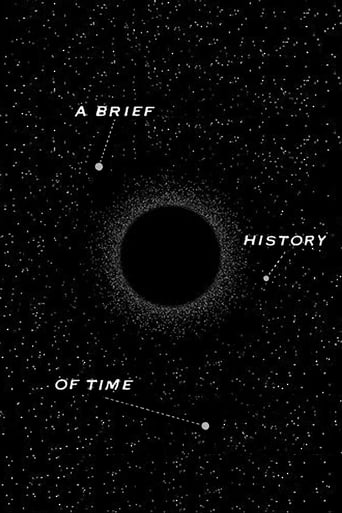
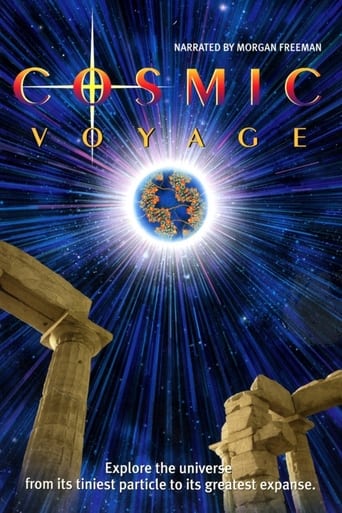
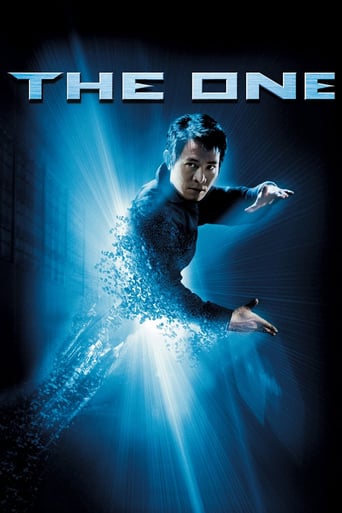

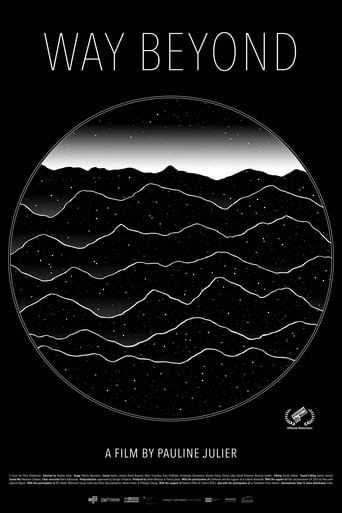
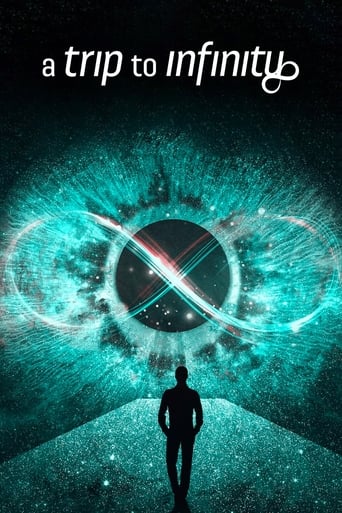
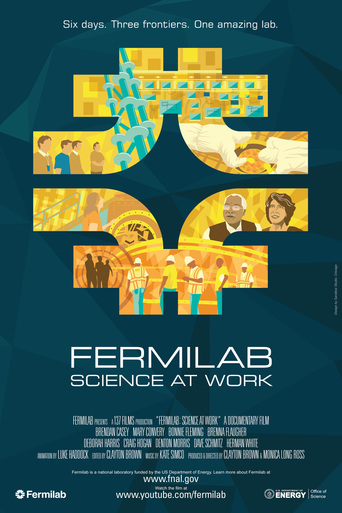
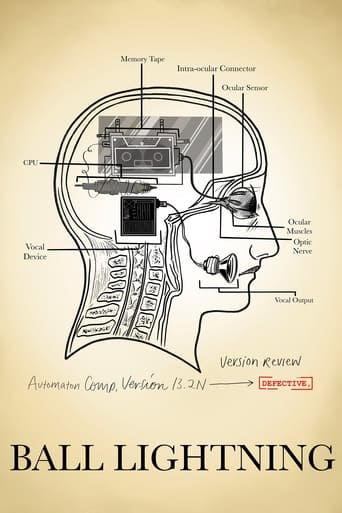
Reviews
Wow! Such a good movie.
That was an excellent one.
A Masterpiece!
A movie that not only functions as a solid scarefest but a razor-sharp satire.
I often noticed (with my great surprise) that my kids seemed pleased every time I started talking about Standard Model and M-theory. Other people too, from different backgrounds and in different occasions, seemed to enjoy a trip (sometimes even a long one) through particles and dimensions: Physics, in other words, is not so boring, at least as long as you don't have to really study it. The present documentary is very well-made (Director Mark Levison earned his PhD in Physics at Berkeley in 1983) and I enjoyed every frame of it. I found it even moving towards the end: who could possibly not cry when the mass of Higgs Boson is revealed? Throwing off the mask I will state what I really feel: QCD rules.
Superficially PARTICLE FEVER is a quest-narrative charting the search by a group of 4000 physicists at a variety of locations - Geneva, Princeton, Texas, for a particle that might provide the key to the way the universe works. There are several obstacles placed along the way, including an inconvenient breakdown of the machinery used to conduct the experiment, but the film ends on an optimistic note as the quest is concluded, and everyone celebrates through internet links.Mark Levinson's film contains a fair amount of technical language spoken by a variety of interviewees, including physicists Martin Aleksa, Nima Arkani-Hamed, Savas Dimopoulos, and Fabiola Gianotti (among others). A lot of it is difficult, well nigh incomprehensible for nonspecialists to understand, but as the documentary unfolds, it soon becomes clear that the quest to prove the theories behind the particles is a peripheral element of the narrative. Levinson is far more interested in showing how the project involves representatives from different nations working together in a community of purpose - even those originating from countries (e.g. the United States, Iran and Iraq), which are supposedly at war with one another. The sight of them participating so enthusiastically offers a hope for the future; beneath the rhetoric expressed by politicians and warmongers there lurks a genuine desire for co-operation across cultures. Perhaps if more attention were paid to these initiatives, then the world might be a safer place.More significantly, Levinson's film shows that the so-called "two cultures" theory espoused by C. P. Snow and other writers has been satisfactorily exploded. Snow insisted that the "arts" and the "sciences" could never work cohesively with one another: one was interested in "ideas," the other in "truths." PARTICLE FEVER begins by insisting that the scientists are pursuing universal "truths" that would help individuals understand the worlds they inhabit; but as the documentary unfolds, so several of the scientists admit that their conclusions will be tenuous at best, and always subject to renegotiation. Put another way, they admit that "truth" is a relative term, dependent on the context in which the term has been employed; this knowledge lies at the heart of all "artistic" endeavors as well. We understand that both communities are engaged in similar activities; the need to discover new things about the world we inhabit and share them with others. This is what drives new research, irrespective of whether it is in the "arts" or the "sciences."Ultimately PARTICLE FEVER is an uplifting film that demonstrates the value of common research, and how it can be conducted across all platforms and all disciplines. Let us hope that the group of scientists have been inspired to continue their valuable work.
This is not an educational film designed for physicists. Those who say the film is light on science should look to its title: "Particle Fever". What does "fever" refer to? Unbridled emotions--from joy to fear--that accompanied scientists' anticipation of an historic event: the operation of the LHC (Large Hadron Collider) in Meyrin, Switzerland.The film explains how the theoretical basis for the CERN experiments dates back decades. Entire scientific careers have focused on theories that might be perfected or destroyed with data from the LHC.Before I started watching this documentary, I decided that I was looking for clarity regarding the physics behind this endeavor. And I was hoping that the film would be engaging. The film is a success on both points. As a layperson, I could never hope to understand the mathematics of theoretic physics or the mechanics of experimental physics, but this film provides the basics for understanding the issues at play and their magnitude. Using a few "actors" to speak to the camera, especially those with overt enthusiasm and those who have invested their lifetimes in this arena of scientific thought, helped me feel their "fever" and understand the stakes.For the most part, this film is presented chronologically, beginning in 2007 as the LHC becomes operational. History and theory are interspersed throughout the film.The most anticipated results of the LHC data pertained to the Higgs boson, a theoretical particle critical to modern particle theory. Much of the drama, at least for those unfamiliar with the data CERN has provided over the years, concerns this particle.This film also shows the relationship of the scientific community with media, which sometimes has the power to excite popular opinion for better or worse. Information presented about a CERN-like project in Texas illustrates that politics play its part, often controlling the purse strings.On the downside, I found some of the universe theory to be anthropocentric and even anthropomorphic. Also, when Nima A. says it is "incredible" that the laws of nature are understandable via math, I understand what he means, but I wonder if there are other "maths" unavailable to us that could explain those laws of nature that are imperceivable by man. We can know but a small part of the multiverse. This is something astronomers have already accepted.
If there's one thing I learned at particle fever, it's probably the fact that Phyiscs is not what I learned in high school. The Physics I studied (and failed miserably) was the calculator of light rays and gravity forces. The real Physics, the one some people choose as their livelihood is, quite literally, a universe away. Some might say multi-verse away. But I'm jumping ahead of myself. The focus of the movie- the Hydron collider in Switzerland is a project according to all projections, should never have materialized. Its costs sky-rocketed to five billion pounds, it took almost twenty years to build and a few more years to overcome glitches (and when you build a seven mile long tunnel to run beams in the speed off light, glitches are inevitable) and it's functional and commercial uses are, as of today, non-existent. It's hard to persuade people to allocate money and time just to get a replay of the big bang. Alas, it's not the Hedron's goal.I'm still jumping ahead.Physics is the most pretentious of scientific fields. Its purpose is to compose the great manual of the universe. A tough assignment considering no one knows how it works, how long it will work or if it was intentionally premeditated to work. CERN, The ultimate place of worship for all physicists, takes the wild theories of the universe and with high powered, heavily documented and shockingly susceptible device, puts them to the test. The one test that CERN failed to anticipate is the test of the real world. When one operate a gigantic, costly collider, you need press coverage, in order to do that, CERN must provide insights. Keeping the experiments clandestine, isolate CERN from the media, making them public, lead to rushed tests that more often than not, fail and alienate the press even more. Apparently, the world outside the Hedron collider is as vicious as the Collider itself.Of course, the Hedron collider overcame all its initial difficulties and supplied the world with shocking insights that leave many questions unanswered. One that, in my opinion, looms over all the rest, is whether or not this manual of the universe was authored or generated by circumstances. In other words, is there a big guy upstairs or is this universe one big exercise in probability. This movie makes you think. beyond the colorful and diverse types of physicists, it projects an image of the universe and forces us to redefine perspective. Now, that's quite an accomplishment for a modest documentary. Don't expect the movie to be easy. It's not for the Physics majors but it's also not digested to be user-friendly. Manuals never are. 8 out of 10 in my FilmOmeter


